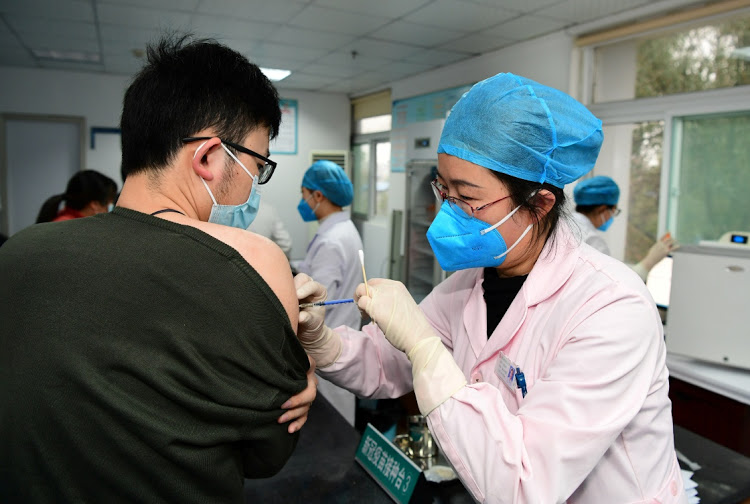China has administer 139.97 million doses of COVID-19 vaccines by April 4, 2021, said the country’s National Health Commission (NHC).
China is working to ensure its vaccination efforts in major areas and key industries based on the overall plan of the country, inoculating the eligible population as widely as possible and progressing in stages, said Wu Liangyou, deputy director of the NHC’s Disease Prevention and Control Bureau.
The country is gathering resources to ensure inoculation in large- and medium-sized cities, port cities, and border areas with high risks of infection, and priorities are given to key groups including public sector employees, students and faculty of colleges and universities, as well as service staff of large supermarkets, Wu introduced, adding that vaccination for other groups is also in progress.
At present, Beijing, Shanghai and some other places in China have administered COVID-19 vaccines to senior citizens above the age of 60 and patients with chronic diseases who are willing to be vaccinated and in good physical conditions.
He Qinghua, an official with the NHC, noted that the commission will advance the vaccination campaign in an order of priority, following the principle of informed consent, voluntary participation and free inoculation.
The country is coordinating regular prevention and control with its vaccination efforts, ensuring that the regulatory responsibility of local governments and the oversight responsibility are fulfilled, and advancing its vaccination campaign in a more secured, orderly and forceful manner, He said.
Besides, China is also taking steps to include more people in its vaccination campaign to ensure their health, the official added.
So far, China has approved COVID-19 vaccines produced by five enterprises for conditional marketing or emergency use. Phase III clinical trials of three inactivated vaccines and one adenovirus vaccine showed that their efficacy met the requirements of China’s National Medical Products Administration and the World Health Organization. Phase II trials of the recombinant protein subunit vaccine approved for emergency use showed the vaccine is safe and can induce a strong immune response.
“COVID-19 vaccines adopted by China have all gone through clinical studies in accordance with relevant standards, approved by national drug regulatory organizations and put into use after passing strict examination,” said Li Bin, deputy head of the NHC.
All vaccines must be monitored and have their temperatures recorded at regular intervals to ensure that they meet the requirements regarding temperature environment and transportation.
China’s health regulators also enhanced efforts on the training of health workers, requiring them to strictly obey operating instructions, so as to guarantee the efficacy and safety of the vaccines, Li added.

Leave a Reply